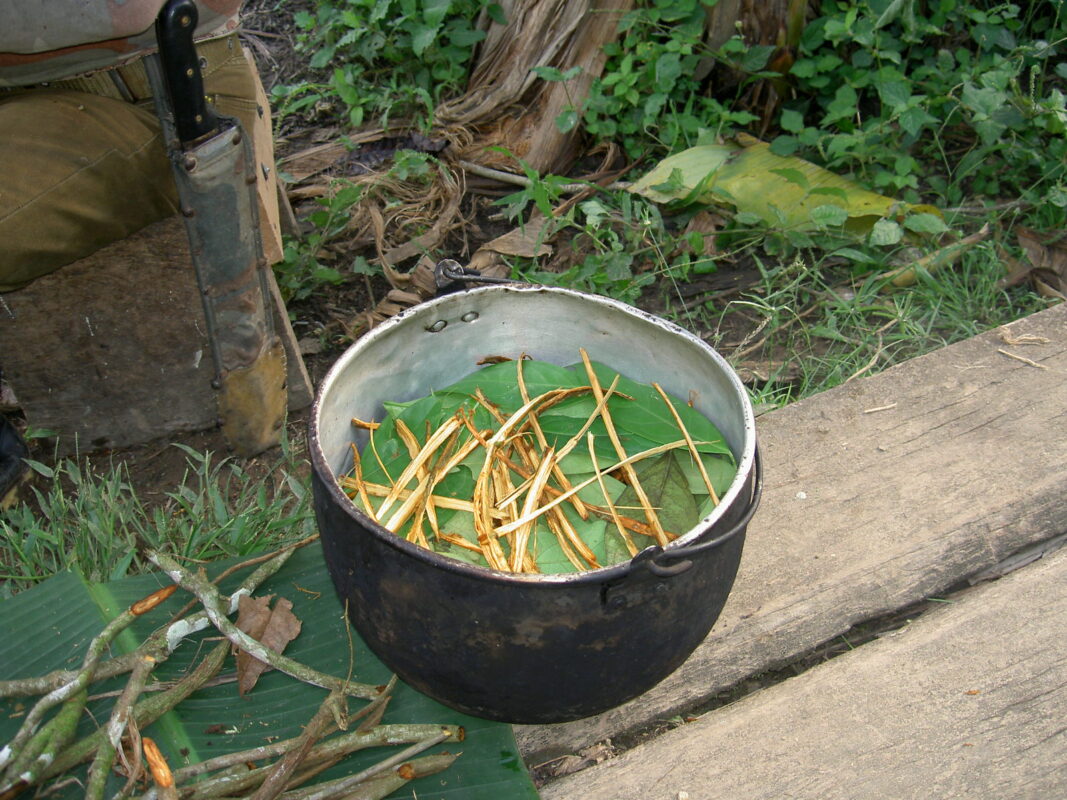Articles
Ayahuasca Therapeutic Potential
Ayahuasca: Traditional Use, Spiritual Insights, and Therapeutic Potential
Ayahuasca, a potent entheogenic brew, has been used for centuries by indigenous cultures in the Amazon basin for spiritual and healing purposes. This psychoactive concoction, traditionally prepared from the Banisteriopsis caapi vine and the leaves of the Psychotria viridis plant contains the visionary compound DMT (Dimethyltryptamine). In recent years, Ayahuasca has gained significant attention worldwide for its potential to provide profound spiritual insights and therapeutic benefits. This article explores the traditional use, spiritual insights, and therapeutic potential of Ayahuasca.
Traditional Use of Ayahuasca
Ayahuasca has been an integral part of indigenous Amazonian cultures for generations. In shamanic ceremonies and rituals, Ayahuasca serves as a sacrament, acting as a conduit for spiritual connection, self-exploration, and healing. Indigenous cosmology and worldview deeply root the traditional use of Ayahuasca, believing it grants access to the spirit realm and facilitates communication with the divine.
Spiritual Insights and Transcendent Experiences
Ayahuasca ceremonies induce profound spiritual and transcendent experiences. Indigenous communities often refer to the brew as “La Medicina” (The Medicine), highlighting its potential for spiritual growth and healing. Many individuals report encounters with otherworldly entities, visions of cosmic patterns, and a sense of interconnectedness with all beings and the universe. These experiences can offer deep insights, personal revelations, and a renewed perspective on life and existence.
Therapeutic Potential of Ayahuasca
In recent years, Ayahuasca has gained attention as a potential therapeutic tool for various mental health conditions. Research and anecdotal reports suggest that Ayahuasca-assisted therapy may be beneficial for:
- Depression and Anxiety: Ayahuasca has shown promise in alleviating symptoms of depression and anxiety. Believers attribute its ability to facilitate emotional processing, uncover underlying traumas, and promote healing on a psychological and emotional level.
- Substance Abuse Disorders: Ayahuasca-assisted therapy has been explored as a potential treatment for substance abuse disorders. The brew’s introspective and often challenging nature, combined with the support of experienced facilitators, may help individuals gain insight into their addictive patterns and facilitate transformative change.
- Post-Traumatic Stress Disorder (PTSD): Ayahuasca has been studied for its potential in treating PTSD. The brew’s ability to access deeply rooted emotions and memories may assist individuals in processing and integrating traumatic experiences, leading to healing and symptom reduction.
- Existential Distress and Meaning-Making: Ayahuasca ceremonies can provide individuals with a profound sense of purpose, existential insights, and a deepened understanding of their place in the world. This may help individuals struggling with existential distress find meaning, direction, and a renewed sense of purpose in life.
The Importance of Set, Setting, and Integration
Ayahuasca experiences should be approached with caution and respect. Set and setting, including mindset, intention, and the physical environment, play a crucial role in shaping the Ayahuasca journey. It is vital to participate in ceremonies led by experienced facilitators in a safe and supportive environment.
Integration is also essential after the Ayahuasca experience. Integrating the insights and lessons gained from Ayahuasca into daily life is a critical part of the healing process. Integration practices may include therapy, journaling, meditation, and engaging in supportive communities.
Conclusion
Ayahuasca holds a rich cultural and spiritual heritage and offers profound spiritual insights and potential therapeutic benefits. As interest in Ayahuasca grows, it is important to approach it with reverence, respect, and a deep understanding of its traditional use and cultural context. Individuals considering Ayahuasca should seek experienced and reputable facilitators and approach the experience with a mindset of openness, curiosity, and self-care. As research continues and therapeutic approaches evolve, Ayahuasca has the potential to offer transformative experiences, deep healing, and spiritual growth to those who approach it with sincerity and reverence.


